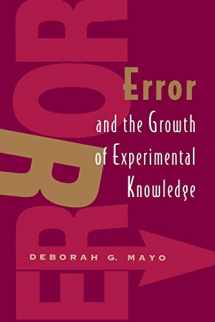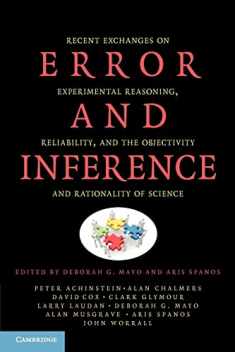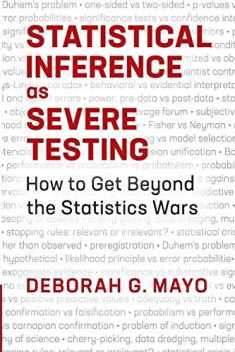
Error and the Growth of Experimental Knowledge (Science and Its Conceptual Foundations series)
Book details
Summary
Description
We may learn from our mistakes, but Deborah Mayo argues that, where experimental knowledge is concerned, we haven't begun to learn enough. Error and the Growth of Experimental Knowledge launches a vigorous critique of the subjective Bayesian view of statistical inference, and proposes Mayo's own error-statistical approach as a more robust framework for the epistemology of experiment. Mayo genuinely addresses the needs of researchers who work with statistical analysis, and simultaneously engages the basic philosophical problems of objectivity and rationality.
Mayo has long argued for an account of learning from error that goes far beyond detecting logical inconsistencies. In this book, she presents her complete program for how we learn about the world by being "shrewd inquisitors of error, white gloves off." Her tough, practical approach will be important to philosophers, historians, and sociologists of science, and will be welcomed by researchers in the physical, biological, and social sciences whose work depends upon statistical analysis.


We would LOVE it if you could help us and other readers by reviewing the book
Book review





